The music in this podcast episode comes from the album Subliminal Mind Pub by Nick Herman. Purchase the full album on Bandcamp. Support indie artists!
In my last post I talked about a popular misconception of Cartesian introspection and promised to walk you through what Descartes actually says in his seminal work, Meditations on First Philosophy. Here’s another site with audio. Feel free to follow along! This post will include the first two Meditations, and the next post will cover the rest (six total).
PODCAST LISTENERS…WATCH OUT FOR THE EVIL DEMON!
BWAH HA HA…
A Somewhat Neutral Summary
FIRST MEDITATION
In order to establish a secure foundation for a system of knowledge, Descartes proposes we start from scratch and rid ourselves of all our hand-me-down opinions:
“For quite some time I’ve been aware that, starting from youth, I had received many false opinions as true, and that everything which I had founded upon these principles was so dubious and uncertain that it became necessary for me seriously to undertake, once in my life, to undo all of the opinions which I had received from birth, and to start all over from the foundations if I wanted to establish a firm and stable structure in the sciences.”1
He’s putting knowledge through the ultimate stress test, but this is simply a matter of method, a kind of thought experiment we engage in temporarily, not a skeptical philosophy or worldview. In detaching ourselves from ordinary life we’re engaging in a philosophical activity which is necessarily unsocial. Thus, sitting in a stove-heated room away from all disturbances and passions, Descartes strips himself of his dubious opinions and beliefs in order to begin anew from a solid foundation built on certainty—this is the goal.
He starts by doubting all information derived from the senses (through sight, sound, smell, touch, and taste). To him, sense perception is often misleading, not just sometimes misleading. He goes so far as to doubt that the hands he sees before him, his feet, and the other bodily parts which he had formerly thought himself to possess are really such as he perceives them. When he claims his sense perceptions can be doubted, he at first assumes there must be external realities of some sort which cause his perceptions. In the following passage he likens perceptions to dreams, and the realities causing these perceptions to being awake:
“However, we must at least admit that the objects which appear to us in sleep are like pictures or paintings which can only be formed as likenesses to something real and true; and so at the very least these general things such as eyes, a head, hands, and all the rest of the body, are not just imaginary objects, but real and existent…And for the same reason, even if these general things such as eyes, a head, hands, and the like were imaginary, we must admit real, existing things that are even more simple and more universal than these, and all of the images of things which reside in our thought, whether they be true and real or false and fantastic, are neither more nor less formed from the mixture of certain real colors. In this sort of thing lies corporeal nature in general, and its extension…”2
For instance, unicorns aren’t natural, living creatures—this is what we normally mean when we say “unicorns don’t exist” or “unicorns aren’t real”. But of course unicorns are real! Where did this idea ‘unicorn’ come from, then? Descartes thinks such ideas must be constructed out of elements from reality, such as horn, horse, white. When I’m dreaming or imagining, I don’t invent something entirely new from nothing. What seems new isn’t invented from scratch; it turns out to derive its components from waking life. Dreams consist of perceptual elements that appear to me when I am awake, just discombobulated.
For now Descartes assumes these perceptual elements such as colors must correspond to some kind of reality. But then he realizes he can’t know beyond a doubt that reality is as he perceives it. This means the observation-based sciences such as physics and astronomy, which rely on sensory perception, are useless in the search for indubitable truths. On the other hand, it seems at first glance as though math and geometry escape unscathed, “for whether I am awake or dreaming, it remains true that two plus three equals five, and that a square never has more than four sides.”3 Mathematical propositions are not empirical, which means that they’re not derived from sensory perception. Even if we rely on diagrams and visual aids while doing math, these visual aids are mere symbols representing ideas which are not empirical. For example, a perfect circle doesn’t exist in nature—a perfect circle is necessarily invisible—but the idea of it as a 360 degree figure exists in our minds, even if we can’t ‘picture’ it. It’s the perfect circle, not the various circles that we perceive in the world, that’s the proper object of mathematics. So math and geometry are untouched by the act of doubting sense perception.
BUT WAIT! Can we trust mathematical truths beyond doubt? What if there’s an all-powerful evil genius who thwarts my every thought such that even when I believe I’ve obtained the most certain of truths, I’m still deceived? Descartes ponders this terrible possibility:
“It could be that he had wanted me to be mistaken every time I add together two and three, or count the sides of a square, or form some judgment still more simple, if indeed a simpler judgment could be imagined.”4
This leads Descartes to doubt the existence of the external world altogether, for an all-powerful evil genius could have “arranged that there should be neither earth, nor sky, nor any extended thing.”5 At the end of the first Meditation, Descartes leaves us suspended in doubt, uncertain as to whether we can know anything at all.
SECOND MEDITATION
Descartes seems to get himself out of the evil genius problem by finding a foundational truth that at first appears to pass the stress test of extreme doubt. I will refer to it as the cogito, which is a term that means “I think” in Latin but is here used to describe the entire phrase “I think; therefore, I am”, or cogito ergo sum.
In doubting of all sensible things, even of my own body, and despite the possibility that an evil genius may be thwarting my every thought and making them all false, it can never be possible that while I doubt, I am not thinking, or that while I am thinking, I do not exist:
“There is no doubt at all that I exist, even if he deceives me. Let him deceive me as much as he wishes, for he can never bring it about that I am nothing so long as I shall be conscious that I am something.”6
If I inquire as to what I am, I can safely conclude, “I am a thinking thing.” Thinking is my essence, regardless of what may be the object of my thought, for doubting that I am thinking is impossible and produces a manifest contradiction. The cogito seems to provide a way out of the evil genius problem, yet we will see that Descartes later finds a reason to doubt even this. Take note here that Descartes thinks that the cogito is indubitably true while it is conceived: “I am, I exist, is necessarily true, all the times that I pronounce it, or when I conceive it in my mind.”7 For now, it seems to be enough that the cogito cannot be reasonably doubted, for in the act of conceiving of it, it is impossible to doubt.
Descartes pushes on to see what else he can discover, turning immediately to something outside himself: a piece of wax. Wax changes as it melts; it grows in size, and its color and figure alter. If every property I would normally associate with the wax admits of change, how do I know it’s the same, self-subsisting wax? In other words, what’s left over from these various changes that allows me to know that it’s still the same object of perception, rather than a stream of incoherent perceptions? The property of extension, it turns out, is what unites my experience of the wax, revealing the same persistent object despite its various changes.
But we don’t receive the idea of extension from the perceived object itself; we say instead that the object belongs to the category of extension in general: “I would not conceive of the wax as it is clearly and truthfully, if I did not think that it was capable of receiving even a wider variety of extension than I ever imagined.” Descartes seems to be saying here that although the wax appears to be able to take on different shapes and sizes and I can’t determine the extent to which it can extend, it must belong to the general category of extension in order for me to recognize it as a substance at all. This can be better explained when we think of water. Water is extended to some degree, and though it may evaporate and expand beyond our abilities to see it any longer (just as we can’t see the air), we’d still be inclined to admit the evaporated water remains, in some form or another, an extended substance. Extension, then, doesn’t belong to a particular object, but only to objects in general. If this is true, then extension can’t derive from sensory perception; I don’t perceive extension in general through my five senses like I do odor, color, or hardness.
Descartes says this understanding of extension, extension as a general category to which all substances belong, is a clear and distinct idea:
“But what is this wax which can only be conceived by the understanding of the mind? Certainly it is the same that I see, touch, and imagine—the same that I thought it was from the beginning. But notice, perception is not an act of seeing, touching or imagining, and never was, although it seemed that way previously, but only an inspection of the mind, which can be imperfect and confused, as it was previously, or clear and distinct, as it is now, according to how attentive I am to the things that are in it, and of which it is composed.”8
Descartes claims that the piece of wax can be known clearly and distinctly by the mind, but only as an extended substance in general. Because Descartes can only know about the self-subsistence of objects through this clear and distinct inspection of his mind, he concludes that “there is evidently nothing easier for me to know than my own mind.”9 What he means is objects of sense perception are not properly known through sensory perception, but through the intellect. I can know my mind as intellect more clearly than I can the objects of my sense perception, and in so far as I can know objects of sense perception at all, they can only be clearly and distinctly known through intellection where I discover them to be united by the general property of extension.
What do YOU think?
Descartes doesn’t trust sensory perception. Do you agree that it ought not to be trusted? Why or why not?
The music in this podcast episode comes from the album Subliminal Mind Pub by Nick Herman. Purchase the full album on Bandcamp. Support indie artists!
“RNA Reel”:
This summary comes from my senior thesis with a few minor edits. This is probably the last time I will cite anything this well ever again. Here goes!
René Descartes, Méditations Métaphysiques: Première Méditation, [Metaphysical Meditations : 1 Meditation One]. Bilingual Edition in French and Latin. Introduction by Michelle and Jean-Marie Beyssade: (Paris: Garnier-Flammarion, 1979 ; reprint, Paris, 1992 : Flammarion) AT, IX 13, pp. 55. All future references of this work are to this edition and all translations from the French are my own : « Il y a déjà quelque temps que je me suis aperçu que, dès mes premières années, j’avais reçu quantité de fausses opinions pour véritables, et que ce que j’ai depuis fondé sur des principes si mal assurés, ne pouvait être que fort douteux et incertain ; de façon qu’il me fallait entreprendre sérieusement une fois en ma vie de me défaire de toutes les opinions que j’avais reçues jusques alors en ma créance, et commencer tout de nouveau dès les fondements, si je voulais établir quelque chose de ferme et de constant dans les sciences. »
« Toutefois il faut au moins avouer que les choses qui nous sont représentées dans le sommeil 2 sont comme des tableaux et des peintures, qui ne peuvent être formées qu’à la ressemblance de quelque chose de réel et de véritable ; et qu’ainsi, pour le moins, ces choses générales, à savoir, des yeux, une tête, des mains, et tout le reste du corps, ne sont pas choses imaginaires, mais vraies et existantes…Et par la même raison, encore que ces choses générales, à savoir, des yeux, une tête, des mains, et autres semblables, pussent être imaginaires, il faut toutefois avouer qu’il y a des choses encore plus simples et plus universelles, qui sont vraies et existantes, du mélange desquelles, ni plus ni moins que de celui de quelques véritables couleurs, toutes ces images des choses qui résident en notre pensée, soit vraies et réelles, soit feintes et fantastiques, sont formées. De ce genre de choses est la nature corporelle en général, et son étendue… » Ibid. Première Méditation, [First Meditation], AT, IX 15, pp. 61-63.
« Car, soit que je veille ou que je dorme, deux et trois joints ensemble formeront toujours le nombre de cinq, et le carre n’aura jamais plus de quatre côtés. » Ibid. Première Méditation, [First Meditation], AT IX 16, pp. 63.
« Il se peut faire qu’il ait voulu que je me trompe toutes les fois que je fais l’addition de deux et 4 de trois, ou que je nombre les côtés d’un carré, ou que je juge de quelque chose encore plus facile, si l’on peut imaginer rien de plus facile que cela. » Ibid. Première Méditation, [First Meditation], AT, IX 16, pp. 65.
« Or qui me peut avoir assuré que ce Dieu n’ait point fait qu’il n’y ait aucune terre, aucun ciel, 5 aucun corps étendu… » My italics. Ibid. Première Méditation, [First Meditation], AT, IX 16, pp. 64-65.
« Il n’y a donc point de doute que je suis, s’il me trompe ; et qu’il me trompe tant qu’il voudra, il ne saurait jamais faire que je ne sois rien, tant que je penserai être quelque chose. » Ibid. Méditation Seconde [Second Meditation], AT IX, 19, pp. 73.
« Je suis, j’existe, est nécessairement vraie, toutes les fois que je la prononce, ou que je la conçois en mon esprit. » Ibid. Méditation Seconde [Second Meditation], AT IX, 19, pp. 73
« Or quelle est cette cire, qui ne peut être conçue que par l’entendement ou l’esprit? Certes c’est la même que je vois, que je touche, que j’imagine, et la même que je connaissais dès le commencement. Mais ce qui est à remarquer, sa perception, ou bien l’action par laquelle on l’aperçoit, n’est point une vision, ni un attouchement, ni une imagination, et ne l’a jamais été, quoiqu’il le semblât ainsi auparavant, mais seulement une inspection de l’esprit, laquelle peut être imparfaite et confuse, comme elle était auparavant, ou bien claire et distincte, comme elle est à présent, selon que mon attention se porte plus ou moins aux choses qui sont en elle, et dont elle est composée. » Ibid. Méditation Seconde [Second Meditation], AT IX, 24, pp. 87.
« Mais enfin me voici insensiblement revenue où je voulais ; car, puisque c’est une chose qui m’est à présent connue, qu’à proprement parler nous ne concevons les corps que par la faculté d’entendre qui est en nous, et non point par l’imagination ni par les sens, et que nous ne les connaissons pas de ce que nous les voyons, ou que nous les touchons, mais seulement de ce que nous les concevons par la pensée, je connais évidemment qu’il n’y a rien qui me soit plus facile à connaître que mon esprit. » Ibid. Méditation Seconde [Second Meditation], AT IX, 26, pp. 91.


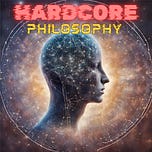


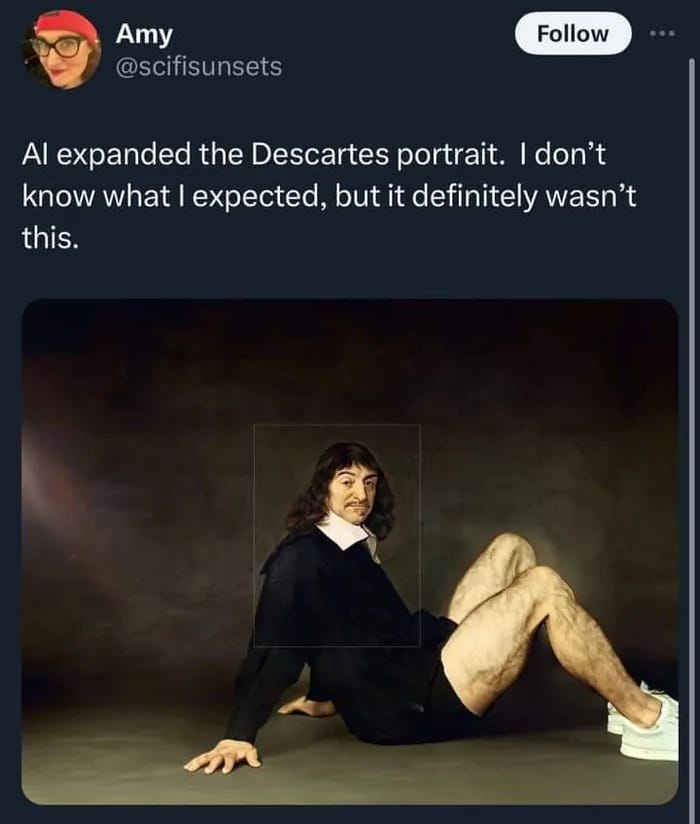
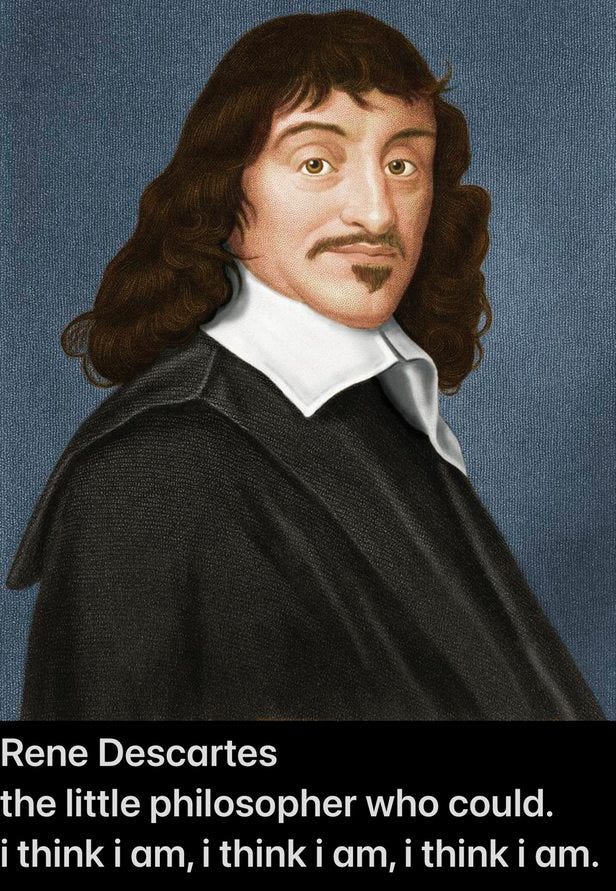

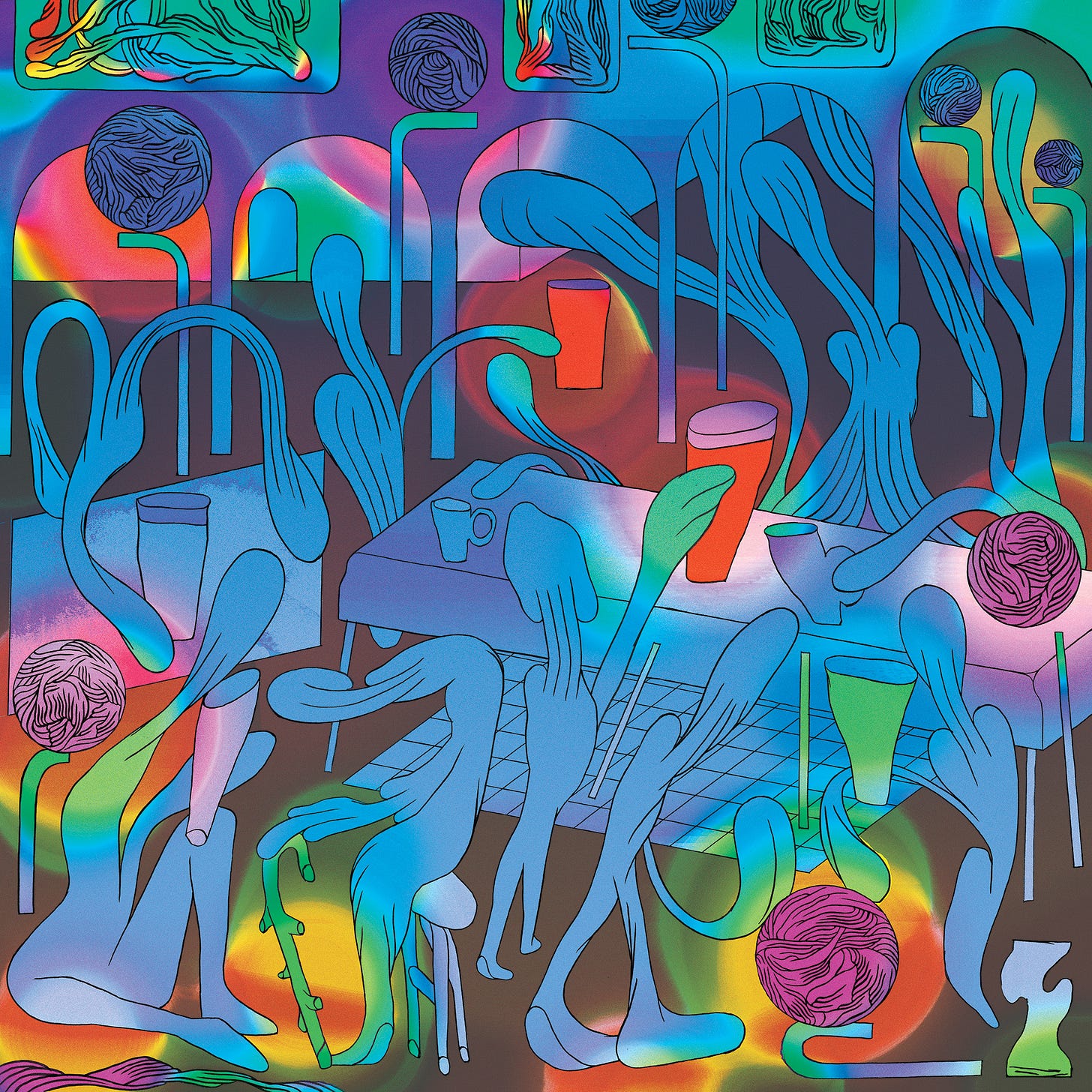

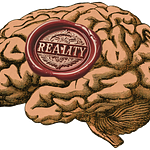






Share this post